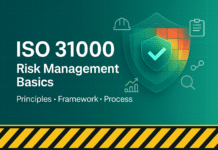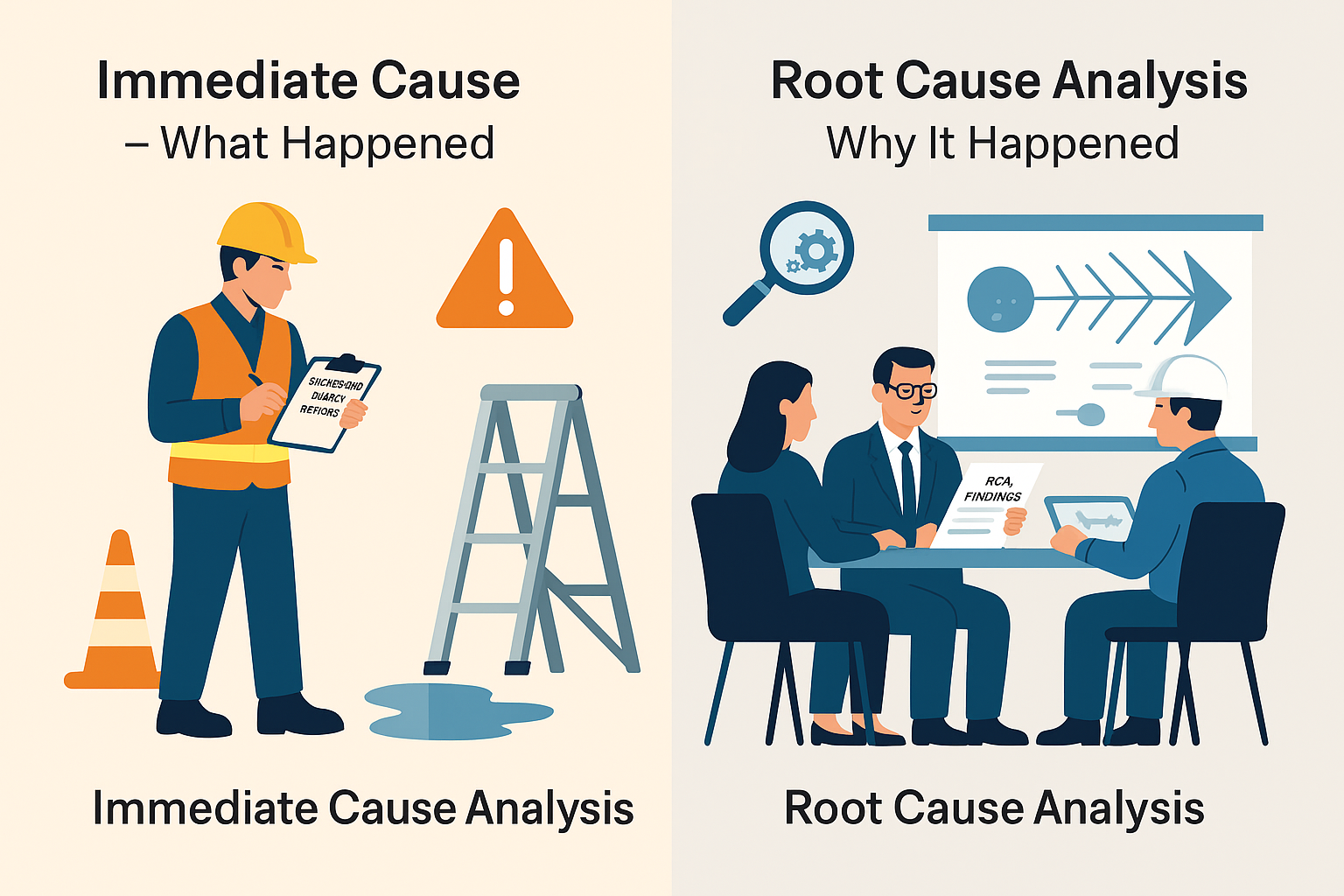
ISO Certification: A Guide to Quality Management
Ensuring Excellence through International Standards
In today’s competitive business landscape, maintaining high-quality products and services is crucial to gaining a competitive edge. ISO certification plays a pivotal role in ensuring that organizations meet and exceed international quality standards. In this comprehensive guide, we will delve into the world of ISO certification, exploring its significance, benefits, and the process involved. Join us on this journey towards excellence.
Understanding ISO Certification
What is ISO?
ISO stands for the International Organization for Standardization. It is an independent, non-governmental organization that develops and publishes international standards to ensure the quality, safety, and efficiency of products, services, and systems. ISO standards cover a wide range of industries, from manufacturing and healthcare to information security and environmental management.
Why is ISO Certification Important?
ISO certification is vital for organizations as it demonstrates their commitment to meeting and exceeding international quality standards. It instills confidence in customers, investors, and stakeholders and can open doors to new markets and opportunities. ISO standards provide a framework for continuous improvement, helping companies enhance their processes and deliver superior products and services.
Types of ISO Certification
ISO offers a diverse range of certification options, tailored to different industries and quality management needs. Let’s explore some of the most common types:
ISO 9001: Quality Management System
ISO 9001 is the gold standard for quality management. It focuses on processes, customer satisfaction, and continual improvement. Organizations with ISO 9001 certification have robust quality management systems in place, ensuring consistent product or service excellence.
ISO 14001: Environmental Management
ISO 14001 addresses environmental responsibilities and helps organizations minimize their environmental impact. It is crucial for companies looking to demonstrate their commitment to sustainability and environmental stewardship.
ISO 27001: Information Security
In today’s digital age, information security is paramount. ISO 27001 certification ensures that organizations have robust information security controls in place, safeguarding sensitive data and protecting against cyber threats.
Benefits of ISO Certification
Obtaining ISO certification offers a multitude of benefits that go beyond meeting international standards. Here are some key advantages:
Enhanced Credibility
ISO certification enhances an organization’s reputation, signaling a commitment to quality and customer satisfaction. It builds trust among customers and partners, making it easier to establish long-lasting relationships.
Improved Quality Control
ISO standards promote a culture of quality within an organization. Through standardized processes and continuous improvement, companies can identify and rectify issues promptly, resulting in higher-quality products and services.
Expanded Market Opportunities
ISO certification opens doors to global markets. Many international clients and organizations prefer to work with ISO-certified partners, creating new business opportunities and expanding market reach.
The ISO Certification Process
Achieving ISO certification involves several steps:
Preparing for Certification
Before pursuing certification, organizations must prepare by conducting a gap analysis and identifying areas that need improvement. This stage is critical for success.
Documentation and Implementation
Once the gaps are identified, organizations must document their processes and implement necessary changes to align with ISO standards. This involves creating quality manuals, procedures, and work instructions.
Certification Audit
An independent certification body conducts an audit to assess whether the organization’s processes and systems comply with ISO standards. If successful, the organization is awarded ISO certification.
ISO Certification Myths Debunked
It’s Only for Large Corporations
ISO certification is not limited to large corporations. Small and medium-sized enterprises (SMEs) can also benefit from ISO certification by enhancing their competitiveness and credibility.
ISO Certification is Expensive
While there are costs associated with certification, the long-term benefits far outweigh the initial investment. The cost of non-compliance and poor quality can be much higher.
It’s a One-Time Process
ISO certification requires ongoing commitment. Organizations must continually improve their processes and undergo regular audits to maintain certification.
Industry-Specific ISO Standards
ISO standards are tailored to specific industries, addressing unique quality and safety requirements. Let’s explore a few examples:
ISO 13485: Medical Devices
ISO 13485 sets quality management standards for manufacturers of medical devices. Compliance is crucial to ensure patient safety and regulatory compliance.
ISO/TS 16949: Automotive
The automotive industry relies on ISO/TS 16949 to maintain quality standards throughout the supply chain, from manufacturers to suppliers.
ISO 22000: Food Safety
ISO 22000 focuses on food safety management systems, ensuring the quality and safety of food products from farm to fork.
ISO Certification and Sustainability
ISO certification plays a vital role in promoting sustainability:
Reducing Environmental Footprint
ISO standards like ISO 14001 help organizations reduce their environmental impact by implementing eco-friendly practices.
Corporate Social Responsibility
ISO 26000 provides guidelines for corporate social responsibility, encouraging organizations to contribute positively to society and the environment.
Maintaining ISO Certification
Sustaining ISO certification requires dedication:
Continuous Improvement
Organizations must continually seek ways to improve their processes, enhancing product quality and customer satisfaction.
Regular Audits
Regular audits ensure ongoing compliance with ISO standards and identify areas for improvement.
ISO Certification: A Global Perspective
ISO certification is recognized worldwide:
International Recognition
ISO certification is accepted and respected globally, facilitating international trade and partnerships.
ISO in Emerging Markets
ISO certification can be a competitive advantage in emerging markets, where quality standards are becoming increasingly important.
ISO vs. Other Quality Standards
Let’s compare ISO to other quality standards:
Comparing ISO to Six Sigma
While Six Sigma focuses on process improvement, ISO offers a broader framework for quality management.
ISO vs. TQM
Total Quality Management (TQM) and ISO both emphasize quality but differ in their approaches and scope.
Common Challenges in ISO Certification
Organizations may encounter challenges on their ISO certification journey:
Employee Resistance
Resistance to change can be a hurdle. Effective communication and training can mitigate this challenge.
Keeping up with Updates
ISO standards evolve. Staying updated is crucial to maintaining compliance.
Navigating Complex Documentation
Creating and managing documentation can be overwhelming. Tools and expert guidance can simplify the process.
ISO Certification: A Competitive Advantage
ISO certification offers a competitive edge:
Winning Customer Trust
Customers trust ISO-certified organizations to deliver high-quality products and services.
Attracting Investors
ISO certification can attract investors seeking responsible and reliable partners.
Staying Ahead of Competitors
ISO-certified organizations stand out in the market, positioning themselves as leaders in quality and excellence.
Future Trends in ISO Certification
The future of ISO certification is evolving:
Digital Transformation
Technology will play a more significant role in ISO certification, streamlining processes and audits.
ISO in Remote Work Environments
ISO standards will adapt to the growing trend of remote work, ensuring quality even in dispersed teams.
ISO in Healthcare
The healthcare sector will increasingly embrace ISO standards to enhance patient safety and quality of care.
Conclusion
ISO certification is a pathway to excellence, enabling organizations to meet international quality standards, enhance credibility, and access global markets. By embracing ISO, businesses can drive continuous improvement and secure a competitive advantage.
ISO: International Organization for Standardization
ISO 45001:2018 Occupational Health & Safety Management
ISO 14001:2015 Environmental Management
ISO 9001:2015 Quality Management
FAQs (Frequently Asked Questions)
1. How long does it take to obtain ISO certification?
The time to obtain ISO certification varies depending on the organization’s readiness and complexity. On average, it can take several months to a year or more.
2. Is ISO certification mandatory for all businesses?
ISO certification is not mandatory, but it can be highly beneficial for organizations seeking to enhance their quality management and competitiveness.
3. Can ISO certification be revoked?
Yes, ISO certification can be revoked if an organization fails to maintain compliance with ISO standards during audits.
4. Are ISO standards updated regularly?
Yes, ISO standards are periodically updated to reflect industry advancements and changing requirements.
5. How can ISO certification benefit small businesses?
ISO certification can help small businesses improve their processes, gain credibility, and access larger markets, leading to growth and success
























